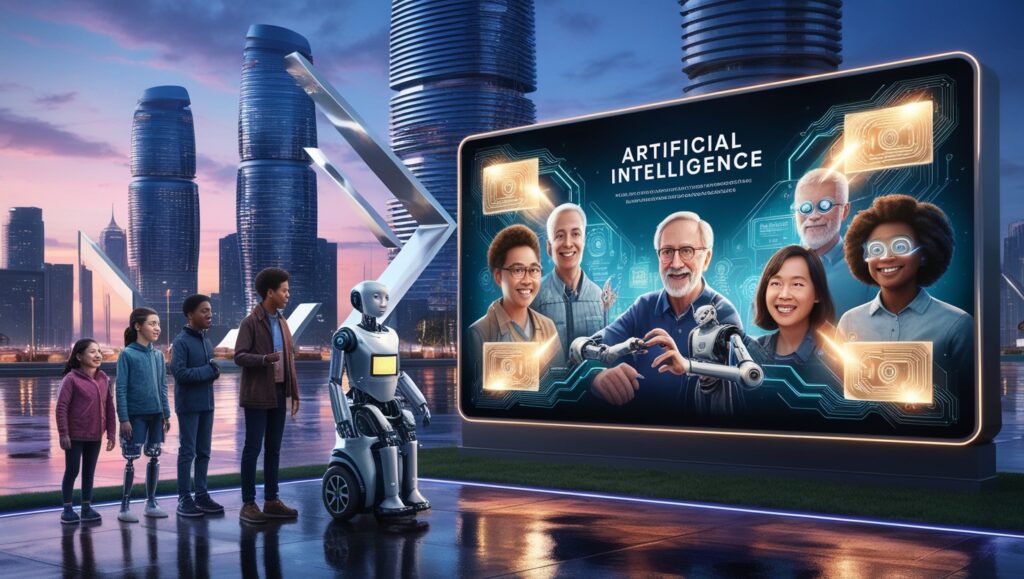The Jay-Z song that was playing during the Google AI commercial during the Olympics is likely something you saw.
Perhaps you’ve seen an alternative Google AI commercial with comic Leslie Jones. Or the one about a father requesting assistance from Google’s AI chatbot to help his daughter write a fan letter. (It was pulled and criticized.)
Has the actor Matthew McConaughey been seen pitching Salesforce AI while sporting a cowboy hat? the advertisement for Meta’s AI chatbot? Has the AI voice of TV host Al Michaels reading advertisements for Microsoft Copilot AI caught your attention?
Samsung is boasting about the AI features in its phones in its online and TV advertisements. Amazon is trying to sell businesses on its AI. (The Washington Post, where you may be seeing an AI advertisement from a tech company right now, is owned by Jeff Bezos, the founder of Amazon.)
Even the musician known as “Brat,” Charli XCX, demonstrated a Google AI function in a new music video.
It may be Brat Summer, but this summer and year are unquestionably an AI marketing onslaught. (For that cheesy statement, I will throw myself in jail.)
You’ll frequently be introduced to new products through advertising. However, given the hype around AI, why are tech companies making such a big effort to convince people that it’s fantastic?
Why are there so many AI ads?
Technology businesses examined by TV measurement company iSpot invested over $196 million in TV ads involving AI through August 8. That amounted to almost half of their entire expenditure for national TV ads this year, according to iSpot.
iSpot and market research firm Sensor Tower report that AI promotional advertising for Meta, Google, Microsoft, and other tech companies have become more prevalent on TV and online in the previous few months, particularly during the Olympics.
One illustration would be that, according to Sensor Tower, Meta advertised their AI chatbot on the internet or through streaming video during the first ten days of August, which coincided with the Paris Games.
Two explanations for the rise in AI advertising were given by media industry researcher Brad Adgate. He stated that, first of all, “it’s a new and competitive product category,” which usually leads to advertising battles for supremacy, as they have in the past with rivalry beer, sports betting, and soda companies.
Adgate stated that artificial intelligence businesses are attempting to become more visible to consumers, and this is simply the most recent example of that.
Secondly, he stated that the Olympic Games were a singular occasion that attracted the interest of several Americans. This made those weeks perfect for spreading the word to a big audience.
Augustus Cook, of the advertising agency R/GA Americas, expressed sympathy for those who are overwhelmed by AI-related advertisements. Cook was involved in the marketing efforts for Google’s AI “circle to search” tool.
According to Cook, the problem facing technology businesses and marketing executives is providing concrete instances of how AI may improve our lives or work and demonstrating why one company’s AI is superior to another.
Even with the best technology, it won’t matter if you can’t win people over. It’s an uphill battle, according to Cook.
The majority of the businesses listed here either declined to comment or did not answer queries. Salesforce’s senior vice president for global campaigns and sports marketing, Adam Forrest, stated that the company’s advertisements assist in demonstrating “the practical everyday ways our AI is helping consumers and employees.”
The shift from “I hate advertisements” to accepting them
It wasn’t too long ago for many Silicon Valley businesses to feel that using traditional advertising to market themselves was gauche. The general consensus was that the items were so outstanding that they could sell themselves, while there were some outliers, such as Apple’s well-known advertising campaigns.
However, businesses’ marketing strategies also became more common as technology did.
According to Brian Wieser of Madison and Wall, an advertising research and consulting business, tech companies are currently among the biggest brand advertisers globally.
(A commercial featuring a happy couple driving a Hyundai, for instance, over the mountains is an example of brand promotion. It makes you feel good about the company the next time you’re in the market for a new vehicle). TV was the world’s leading marketing medium thanks to this kind of advertising, but data-driven advertisements on websites like Google, Facebook, and Amazon eventually overtook it.)
Elon Musk’s vehicle firm, Tesla, has begun purchasing some advertisements lately, despite his previous declaration that he detested advertising. An inquiry for comment from Tesla was not answered.
It’s strange that tech companies’ AI advertising spike coincides with this. Recently, investors have expressed dissatisfaction over tech companies’ excessive spending on AI technologies in the absence of sufficient financial returns.
Unexpectedly, OpenAI, the startup that most started the current AI frenzy with its ChatGPT and Dall-E, is not participating in the AI ad battles.
OpenAI does not run any ads.








